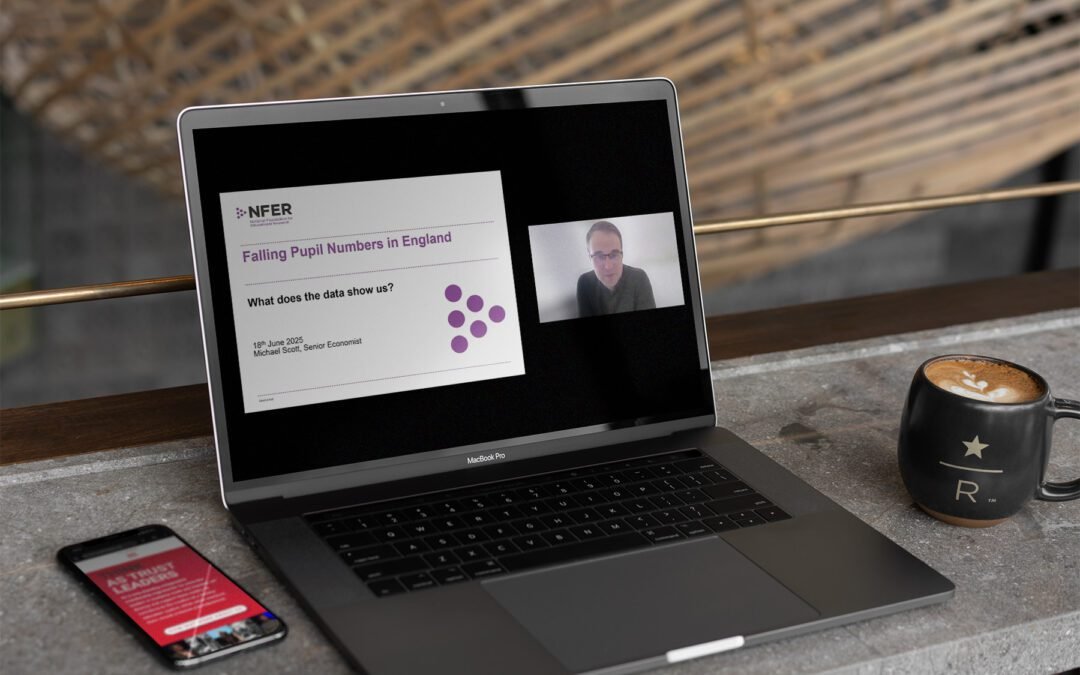The latest Schools White Paper has no doubt left an impression on the trust sector in recent weeks. Trust leaders are giving it significant attention and it now appears to be the focus of (almost!) every conference and seminar going. However, whilst ensuring trusts become sustainable and ‘strong’ is no doubt a fundamentally important aim we all share; the White Paper by no means tells the whole story of the wider world in which trusts and their communities exist in right now, and the profound challenges that will define their leaders’ tenures in the decade ahead. If trusts, their boards and their leaders are going to oversee the successful development of their organisations and make a profound difference to the lives of thousands of children and young people in their communities in the coming years, the White Paper – helpful, but limited, as it is – must be seen as a piece of the jigsaw and not the whole picture.
“ the White Paper – helpful, but limited as it is – must be seen as a piece of the jigsaw and not the whole picture.”
Why do we say this? Well, when it comes to the trust sector proposals, to put it bluntly, the white paper is a bureaucrat’s dream, not a leaders’ vision. It is fundamentally about regulation and consolidation of the system. Important as that is in securing a firm foundation, it is not really about investment, innovation or responsiveness to the current context (all core to the business of leadership). As Maggie Farrar recently told the Forum Strategy podcast – the white paper is rather quite ‘dull’ and unambitious – and maybe it was intended to be, avoiding jolting a system that has dealt with so much challenge and upheaval in recent years. However, the big risk here is that the white paper is mistaken as the vision for trusts and the ultimate definition of success, and that’s a big concern in today’s climate. Very few other sectors are looking to politicians to define the heights of their ambitions and plans for a better future, they’re doing it themselves drawing on their collective professionalism, intelligence and ideas. Indeed, that’s what great trusts have always done.
Don’t mistake us here, there is much to welcome in the White Paper. The ambitions for literacy and numeracy matter greatly in achieving social justice and giving all young people the best chance in life. The expectation that trusts will need to play a greater role in their communities is to be embraced – not least as this is something Forum has suggested and championed for some time. Also, the steps to avoid monopolies of trusts at a local level will be critical in ensuring parental choice and positive competition. This is a constructive ‘nudging’ of the system, based on evidence, that governments are often best placed to achieve. However, when we get further into the document and to the definition of a ‘strong’ trust, we gradually find ourselves descending into ‘tick box’ territory, reviewing a list of characteristics that, whilst noble and sensible, is much more about securing capability than greatness.
“These are fundamental starting principles about what it means to be a successful trust that have been around for some time”
Indeed, the strong trust definition isn’t far away from the thinking in the six dimensions of organisational leadership set out in Being The CEO; Sir David Carter’s work; or, in fairness, the areas covered in Ofsted’s summary evaluations (which aren’t inspections!) of trusts. These are fundamental starting principles about what it means to be a successful trust that have been around for some time, just re-jigged and rebadged as ‘strong trust’ but, tellingly, with the words ‘definition’ and ‘accountability’ now attached to them. Words such as ‘definition’ and ‘accountability’ are loaded, powerful words, and therein lies the worry. Unlike the other publications on what makes a successful trust – which could be considered to be guides or principles for boards and leaders – the ‘strong’ trust definition within the white paper presents itself as a national definition to which trusts across the land will be accountable to. It is a definition that gets a little too close in its presentation to being seen as the outcome of success, not part of the pathway towards it. As a basic standard, we embrace it and encourage its development; as a gold standard we do not.
Why does this matter? Two big reasons. If the intention is for the ‘strong trust’ definition to be presented and interpreted as the gold standard, the first danger is we see the system move towards a fixation on a national definition of success, that doesn’t take into account local challenges, dynamics and opportunities faced by trusts or indeed evolving wider societal issues and challenges. That’s human nature, and we’ve seen it before – what gets measured, gets done. An invisible ceiling could appear, which would be a tragedy for a sector that is needed more than ever to be pioneering and responsive to the challenges and opportunities faced by their pupils, the communities in which they grow up, and by themselves as organisations. For example, the section on workforce is a good, basic, list but it is not a great list. It nods to training, development, and retention – but it doesn’t (yet) recognise the challenges of a sector with a bad reputation for workload (and how many trusts are addressing this), the growing emphasis on flexible working (and why that’s important for retention), or the importance of being a diverse and inclusive organisation that reflects its communities (and raises aspirations amongst minority groups). If we straight-jacket our notion of what a successful trust is too much nationally we will risk suffocating innovation and leadership within the system. We will also potentially leave little room or bandwith for accountability to communities themselves.
“it could be quite easy to tick the boxes and say you are a ‘strong’ trust, without pushing the boundaries on strategy and innovation”
Secondly, the issues and challenges we face will require far more colour and imagination than the words that are laid out in the definition of a ‘strong’ trust. Yes, we need “strong and effective financial management”, but, as we enter a period of the highest inflation in thirty years, we need leaders who can take bold decisions on how to strategically invest the decreasing funds they have at their disposal to respond to local need as they and their boards see it. We need to ensure that we have “high quality education” – but what does that really mean in the decade ahead, especially as some pupils leave schools as masters of technology and others leave as servants of it and enter a jobs market increasingly dominated by artificial intelligence and automation? There’s very little detail on the importance of the partnerships – and we know that the strength of partnerships – particularly with local and regional employers, higher education, the health service, and others – will ensure we can deliver on issues such as wellbeing, future employability of pupils, sustainability, and being a sector that attracts the very best talent available. Forward-thinking, strategic trusts are already considering and planning for these wider issues and dynamics that will impact their pupils and communities.
We are clear that, in the white paper’s words creating: a robust framework for ensuring we can tackle any trust which fails to achieve the expected outcomes by managing and governing their schools effectively is good thing. There needs to be assurance around capability and a minimum standard. The risk here is it could be quite easy to tick the boxes and say you are a ‘strong’, without pushing the boundaries on strategy and innovation that enable you to become a ‘great’ trust that rises with ambition to the profound challenges of the decade ahead.
Next month, members from across our CEO, COO and EducationExecutive members will come together with Sir Michael Barber, Maggie Farrar and Sir Steve Lancashire to consider what they and their trusts wish to accomplish in the years ahead that is big, bold and responds to the challenges of our times. The White Paper will be part of our considerations, but just part of a wider discussion around the key societal, economic and social changes that trusts are wrestling with as they seek to provide the highest standards of education, learning and development.
We, as Maggie Farrar says, may be looking at a White Paper that is intentionally unambitious in its proposals for the trust sector. This could be exactly what it looks – about getting the basics right around capability and organisational sustainability. If that’s the case, the DfE needs to say that and ensure we don’t get lost in the notion that the White Paper is the vision and height of the ambition for a decade of success in the trust sector. We believe too much in the potential of trust leaders – working with one another, their staff and their communities – to believe a national, centrally designed policy document is all there is to securing success in the decade ahead. Let’s keep the flame of aspiration burning for a trust system that is not just ‘strong’ or capable enough to satisfy politicians and bureaucrats, but also continuously seeks to be ‘great’ enough for children and communities entering a rapidly changing and uncertain world full of opportunity and challenge.


